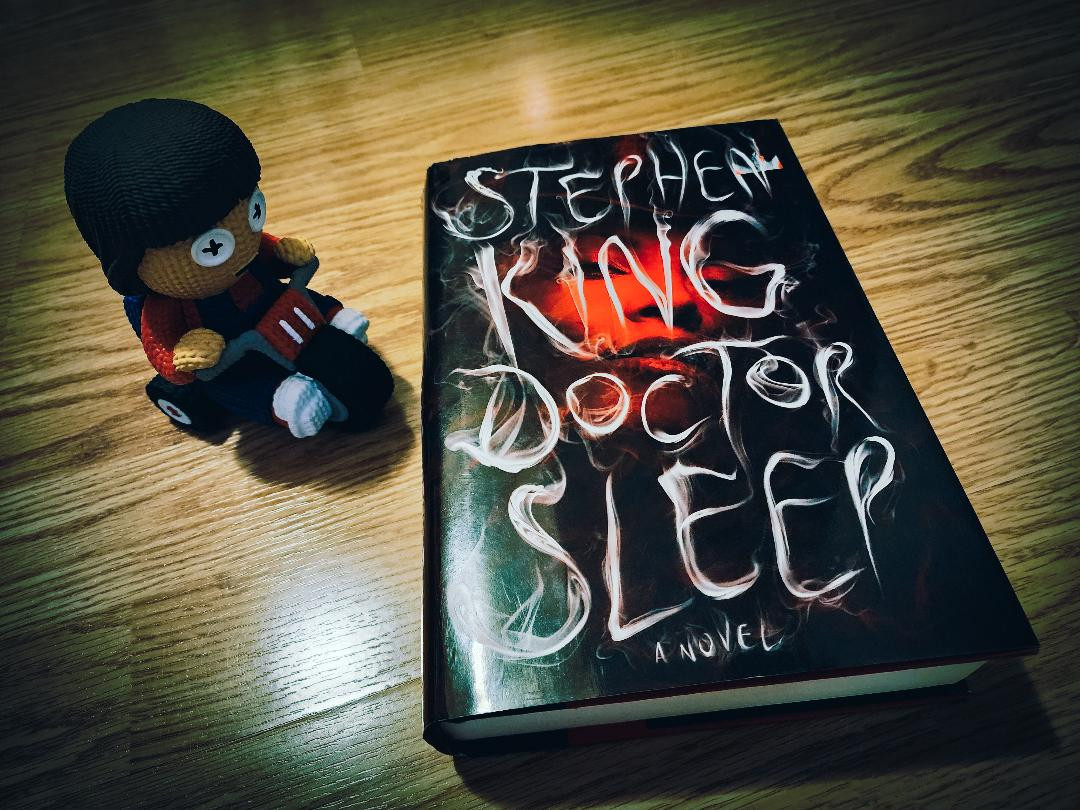As a devoted reader of Stephen King since my formative years, I’ve always held a special place for his works. It was King who ignited my passion for fiction, turning me into a “Constant Reader” for life. While my reading tastes have broadened over the years, a considerable stack of unread Stephen King novels has accumulated on my shelves. Determined to remedy this backlog, I’m diving back into his universe, starting with Doctor Sleep, the highly anticipated sequel to one of my all-time favorites, The Shining.
Doctor Sleep garnered significant acclaim, even earning a Bram Stoker Award. Yet, it presents a distinct shift in tone compared to King’s earlier masterpieces. This evolution is understandable, considering the decades separating the two novels and King’s own personal journey. During the writing of The Shining, King battled severe alcoholism, whereas Doctor Sleep was crafted during his sobriety. This transformation infuses the nostalgia of the original with a fresh, inventive narrative, making Doctor Sleep the ideal choice to reignite my deep appreciation for Stephen King’s storytelling.

In Doctor Sleep book, we find Danny Torrance as an adult, still tormented by the horrific memories of the Overlook Hotel. He turns to alcohol and drugs as coping mechanisms, attempting to suppress his potent supernatural abilities, “the shining.” However, unlike his father, Dan seeks help through Alcoholics Anonymous and begins to rebuild a life for himself in a quiet town in the Northeast. He channels his powers for good, working as a hospital orderly and offering solace to dying patients in their final moments. His life takes a turn when he forms a psychic connection with Abra Stone, a remarkable 13-year-old girl whose shining abilities far surpass his own.
Abra’s immense power attracts the attention of the True Knot, a terrifying group of quasi-immortal beings. These entities, neither fully human nor entirely supernatural, roam America in RVs, preying on children who possess the shining, which they call “steam.” Psychic vampires, the True Knot maintain their unnaturally long lives and youthful appearances by feeding on this steam. Once human, they have devolved into monstrous figures who have discovered that prolonged torture amplifies the power of the released steam, making their sustenance even more potent. Stephen King masterfully portrays evil in both its supernatural and human forms, and the True Knot embody this duality perfectly. Their cursed immortality comes at a steep price; they require a constant and increasing supply of steam to survive, a chilling parallel to the insatiable nature of addiction.
King’s storytelling prowess extends beyond depicting the darkest aspects of humanity; he also illuminates its resilience and goodness. In Doctor Sleep, this is embodied by Dan and Abra. Dan, a trauma survivor grappling with past mistakes, embarks on a powerful journey of overcoming addiction and reclaiming his humanity, a narrative that deeply resonated with me. Like many of King’s protagonists, Dan Torrance is a richly developed, flawed character, fostering a profound connection with the reader. Abra Stone is equally compelling. King has a gift for crafting believable child characters, and Abra is a shining example. She is, in essence, pure magic.
“Life was a wheel, it’s only job was to turn, and it always came back to where it had started.”
Doctor Sleep is an exhilarating, fast-paced novel, propelling readers through its 500-plus pages. However, its impact extends far beyond mere thrills. While my personal struggles differ from alcohol addiction, I have navigated my own recovery from a similarly destructive force, making Dan Torrance’s journey profoundly inspiring. The novel delves into the realities of AA meetings and sponsor relationships, prompting reflection on whether King drew from personal experiences. At its core, Doctor Sleep is a story about confronting one’s past – a fitting theme for a sequel – about finding connection and family, and about the secrets that lurk beneath the surface. While tonally distinct from The Shining, it expands the mythology of the Overlook and the Torrance lineage in a deeply satisfying manner. In this regard, I consider Doctor Sleep to be among Stephen King’s finest works.
An intriguing observation arose while reading Doctor Sleep in our current socio-political climate. The True Knot, despite their ageless nature, are depicted as middle-aged or elderly truckers. It’s hard not to imagine them as participants in MAGA rallies or supporters of similar ideologies if the book were written today rather than a decade ago. Their hubris, epitomized by their leader Rose the Hat, becomes their downfall. Their belief in their invulnerability due to immortality mirrors the “anti-vax” sentiment prevalent today. Given King’s vocal opposition to Trump, this aspect of the novel resonates even more powerfully now than upon its initial release. Perhaps King possesses a touch of supernatural insight himself.
Ultimately, Doctor Sleep is a brilliant sequel that lives up to its iconic predecessor. King undertook a significant risk in revisiting one of his most celebrated novels after three decades, but the endeavor yields remarkable rewards. I wholeheartedly recommend Doctor Sleep and am already eager to explore my next Stephen King adventure. If you’re a Constant Reader who missed this gem, I urge you to experience this satisfying continuation of Danny Torrance’s story.
“There came a time when you realized that moving on was pointless. That you took yourself with you wherever you went.”
Have you read this book, Doctor Sleep? Share your thoughts in the comments below!

